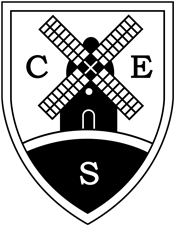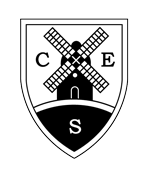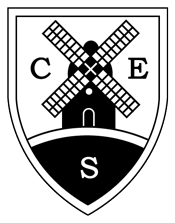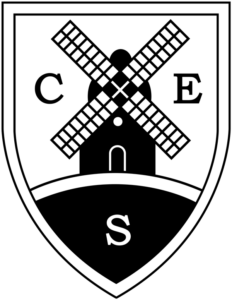KS2 Performance Data 2024
What are SATs?
SATs are statutory assessments carried out by all state schools. They assess how your child’s abilities compare nationally with other children in the same year group.
SATs testing takes place at Key Stage 2 (KS2), when your child will take part in National Curriculum tests in English, maths and the new grammar test at the end of Year 6 (usually age 11). There writing ability will also be assessed by teachers, this is often moderated by an external agency.
Reading, Writing (TA) and Mathematics combined KS2:
Percentage of pupils reaching the expected standard in Reading, Writing and Maths
Reading KS2:
Percentage of children achieving the expected standard
Writing KS2:
Percentage of children reaching the expected standard
Maths KS2:
Percentage of pupils reaching the expected standard
Further Information:
* For a pupil to achieve the expected standard in reading and maths they must achieve a scaled score of 100+ in the corresponding tests.
* For a pupil to be working at greater depth in reading and maths they must achieve a scaled score of 110+ in the corresponding tests.
The average scaled score at Skidby Primary School for reading is 109
The average scaled score at Skidby Primary School for maths is 108

A culture of reading inspires a lifelong love for books.

Teachers successfully plan learning activities that meet the needs and interests of the range of ages and abilities in their classes.

The school’s distinctive Christian vision has brought clear focus and direction to ensure rapid progress as a Church school.

Pupils’ development as advocates for social justice is particularly strong and goes beyond regular fundraising.

Pupils understand the conventions of different genres and demonstrate this in their own compositions.

The breakfast club provides a healthy meal each morning for any pupil who wishes to attend.

Safeguarding is effective and children’s welfare requirements are met. Staff are well trained and vigilant in ensuring that all children are safe.

Collective worship is a central part of daily life, it is invitational and inclusive.

Teachers choose interesting texts to capture pupils’ imagination and support their learning.

Parents are positive about the school’s work and the education their children receive.

Pupils challenge injustice and engage in meaningful social action projects beyond fundraising. This has a very positive impact on both their own lives and those of others.

Younger pupils use punctuation and capital letters accurately, forming sentences with increasing complexity.

A Christian school in a small community, making a big difference.

From an early age there is a strong focus on developing curiosity, by asking questions and reflecting on responses.

In English, texts are carefully chosen to encourage reflection and understanding difference and diversity.

The curriculum effectively provides time for reflection and spiritual growth.

Staff communicate with parents well. Parents are appreciative of the information they receive about how well their children are doing and what they are learning.

Purposeful and varied outdoor learning provides the opportunity for pupils to engage in the awe and wonder of the natural world.

Governors are very well informed and know their school well. They provide the right level of support and challenge.

Teaching assistants have a good understanding of their roles and provide effective support to the pupils they are working with.

Pupils behave well and have positive attitudes to learning. They respect and listen to one another and work well together.

High quality displays in all subjects, including RE, are a priority and enable pupils to see the progress they are making.

Leaders are dedicated to make a difference to every pupil and staff member.

Throughout the school, pupils are polite, friendly and welcoming. They show respect, both to adults and to each other.

Strong relationships with families and the community enrich school life.

The school’s work to promote pupils’ personal development and welfare is good.

Leaders ensure that all curriculum decisions have their vision and associated values of respect, resilience and responsibility at the forefront.

Character development is at the heart of every learning experience.

Pupils rise to meet the ambitions of a broad and balanced curriculum.

Resilience is built through diverse opportunities and managed risks.

Leaders and staff are passionate in their drive to ensure every child at Skidby flourishes.

Pupils make good progress in mathematics. In most classes, teachers plan meaningful and wide-ranging opportunities to solve problems, investigate mathematical ideas and develop mathematical reasoning.

Staff feel exceptionally supported and valued in their roles.

The school’s family ethos creates a calm and welcoming atmosphere.

Religious education (RE) is well led and taught across school. Pupils have an informed understanding of a range of faiths.

Pupils are taught how to keep themselves safe in a variety of situations, such as when using the internet.

Parents are confident that their children are kept safe and are cared for well.

Pupils describe their own spirituality as ‘being themselves, thinking beyond themselves, caring for others, the wider world and beyond’.

The school offers a range of opportunities for pupils to participate in a number of afterschool sports clubs and competitive events.

Pupils enjoy lessons because teaching is challenging them to learn more and achieve better.

Aspirations are high and all, including the most able, are challenged. Pupils take pride in their work and delight in seeing their efforts displayed around school.

Challenged by their learning, pupils are keen to seek justice and fairness for those in society. They talk about ‘how they find a problem and try to sort it out’.

When working together, pupils show good levels of cooperation and help one another willingly. In lessons, they respond well to tasks they have been given and enjoy the work they do.

Teaching, learning and assessment are good across the school.

Driven by their distinctly Christian vision, this school has been on a rapid journey of improvement as a Church school over recent years.

Pupils are proud of their achievements and embrace learning with enthusiasm.

The teaching of writing is good. Teachers ensure that pupils learn to write in different styles and for different audiences.

Across year groups, pupils who are currently in the school are making good progress in reading, writing and mathematics.

In phonics lessons, teachers take opportunities to explain that sounds can be made with different groups of letters. This helps pupils to read simple words.

Respect, responsibility, and resilience weave through school life.

Pupils thrive in an inclusive and nurturing environment.

The behaviour of pupils is good. Around the school, in the dining hall and on the playground, pupils are well behaved and courteous to each other and adults.

Inspired by the Christian vision, collective worship is highly valued and central to the daily lives of pupils. It encourages pupils to reflect on, and live out the school’s Christian values in their own lives.

Pupils attend school regularly. They are very happy in school and feel safe.



